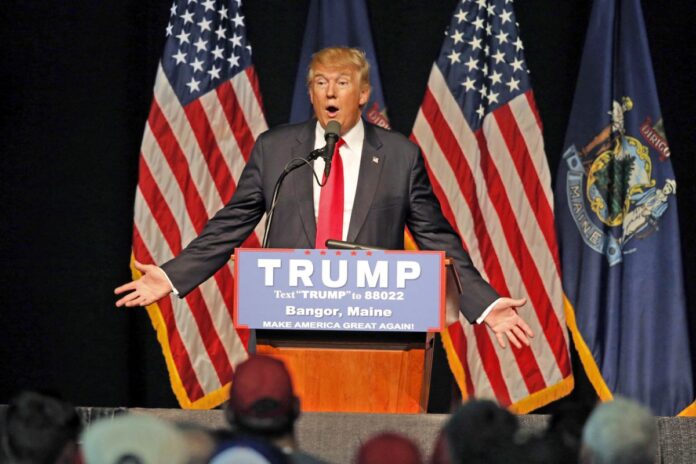White House hopeful Donald Trump said that North American Free Trade Agreement was the worst trade deal in history during a speech Tuesday.
Trump, unhappy with the agreement, said if elected he would renegotiate the terms of the trade pact with the NAFTA partners and “if they do not agree to a renegotiation, then I will submit a notice that America intends to withdraw from the deal.”
The 1994 agreement established created a trade bloc in North America between Canada, Mexico and the United States that allows the countries to import and export goods regularly.
The effects of NAFTA were and continue to be felt directly in the Rio Grande Valley since its establishment.
Keith Patridge, McAllen Economic Development Corporation president and CEO, said the Mexican and Rio Grande Valley economies have become integrated.
“McAllen is very dependent upon Mexico’s consumers and manufacturing,” Patridge said. “That’s really what has built our economy over many years.”
Patridge said anywhere between 30 and 40 percent of sales in McAllen come from Mexican shoppers who make both wholesale and retail purchases, while another large source of income comes from factories across the border.
Between McAllen and Reynosa, for every 10 percent increase in dollars coming out of a Reynosa plant, there is an additional 6.6 percent increase in jobs in McAllen, Patridge said.
“What we find in companies in manufacturing is that they end up substantially impacting the economy on the U.S. side,” he said. “It’s very difficult to see what would happen if we lost NAFTA. It’s very similar to what’s happening with Brexit. We don’t know. It’s all speculation unless it were to happen.”
Patridge said overall, the idea of the United States withdrawing from NAFTA remains hypothetical, though he speculates the local economies would be similar to the pre-NAFTA maquiladora culture.
“He’s wanting to stop the main flow of factory jobs into Mexico — it’s not NAFTA that made that happen — it was the more competitive wages and factors in Mexico,” he said.
Retired U. S. Ambassador to Mexico Antonio Garza said, in 2015 alone, Texas exported more than $250 billion of goods with nearly $100 billion of that money being earned from Mexico.
“The Rio Grande Valley is center stage for much of that movement,” Garza said. “Just look around and you can see the growth and vibrancy that comes with Mexican investment, consumers, friends and family. A lot of that is a by-product of the economic integration that NAFTA has spawned.”
According to the Office of the United States Trade Representative, Mexico or Canada rank as the first or second largest export markets for more than 30 of the 50 states. Since its establishment, U.S. manufacturing exports to NAFTA partner have increased 258 percent.
“Not only would we see a loss in jobs along the border and open hostility on the trade front, (I) am guessing that exiting NAFTA would presage similar approaches to our economic partners in other parts of the world, unleashing a far more severe global recession than the one in which we currently find ourselves,” Garza said. “We’d certainly feel that daily and in ways large and small.”




